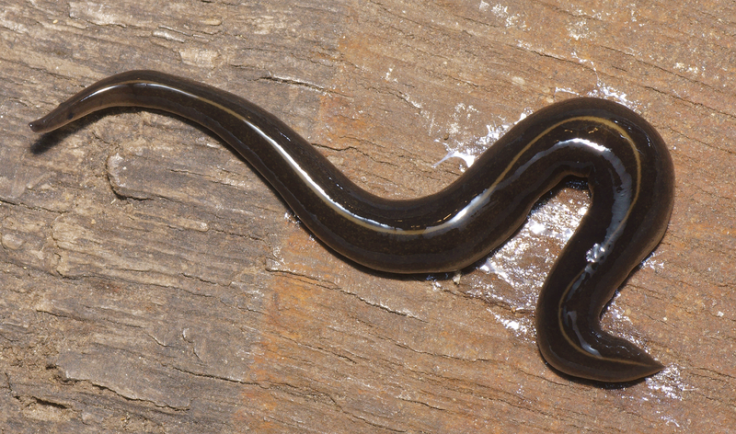Invasive Florida Worm Could Pose A ‘Significant’ Threat To US

A slimy and destructive 2-inch-long worm from the tropics of the South West Pacific has invaded Florida and could squirm its way into other parts of the U.S., wreaking havoc on native snail populations along the way. The species, known as the New Guinea flatworm, has been spotted all over Miami-Dade County -- the first time the worm has been found in North America -- but it might not be confined to the Sunshine State for very long, according to the Miami Herald.
The worm is native to New Guinea, a large, tropical island near Australia, but has recently been found in nearly two dozen countries worldwide, according to a report published last week in the journal PeerJ. It’s mostly been confined to other island nations, having been transported on infested plants or in soil, but has also shown up in Europe. The flatworm was first detected in the U.S. in 2012 in Miami.
Scientists worry that without natural predators, the worm, which can reproduce independently without mating, will begin to spread unchecked. “The species could potentially eventually be spread from Florida throughout the US mainland, and this can be considered a significant potential threat to the whole U.S.,” Jean-Lou Justine, a professor of parasitology at the Nation Museum of Natural History in Paris and lead author of the study, said in a statement.
Scientists have yet to develop a good way of controlling flatworms, he added. The only thing that can really stop them in their tracks is cold -- the worms don’t survive below temperatures of 50 degrees Fahrenheit. The worm is not a threat to humans, researchers said.
One of the biggest concerns has been how the flatworm could affect native snail species. The worm chows down on snails by latching onto a snail’s opening, then regurgitating its acid-laced stomach into the snail’s shell. Once the snail’s flesh has been dissolved, the worm slurps up the snail juice, stomach acid and all. “It is really vile,” David Robinson of U.S. Department of Agriculture told the Miami Herald. “As a biologist I can handle most things, but I find this really revolting.”
Concerns over the worm devastating local ecosystems haven’t been limited to the U.S. The species has previously been spotted, and biologists there were none too pleased. "All snails in Europe could be wiped out," Justine told The Guardian in 2014. "It may seem ironic, but it's worth pointing out the effect that this will have on French cooking."
© Copyright IBTimes 2024. All rights reserved.






















